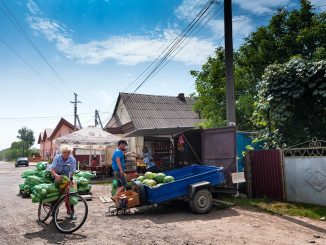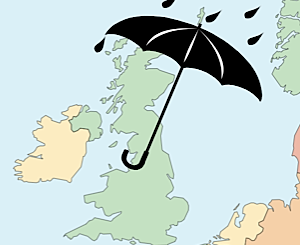Four innovative and committed agroecology initiatives showed how they stepped up in times of Covid19 at a webinar organised by Forum Synergies and ARC2020 last week. And dozens, from all over Europe and beyond, got involved in the conversation. Alison Brogan tells us about this event which provided a moment to reflect, some key contemporary learnings, and which sowed the seeds of further action.
Portugal
First up on the virtual tour of inspiring European food initiatives, we heard from Artur Gregório of In Loco, an NGO which has been involved in community driven sustainable development strategies in the South of Portugal since 1988.
When Covid-19 hit, In Loco expanded its georeferenced database of small producers, local markets and food baskets, which was part of its food education strategy, into a nationwide support platform for local production and consumption.
For In Loco, “Covid-19 has also been the pretext for a national Campaign for Local Production and Proximity Consumption, and for the upcoming launch of an app based on the producers database and on an evaluation procedure that certifies the producers that are “100% Local”
Greece
We then took a trip to Greece, where Jenny Gkiougki of Agroecopolis – the Hellenic network for Agroecology Food Sovereignty and Access to Land – described how the pandemic has exposed “deep pathogenicities” of the agriculture sector.
Taking action, Agroecopolis established a pioneering Participatory Guarantee Scheme for producers and consumers, and ran a nationwide digital and social media campaign to promote local, small, agroecological food reaching beyond the typical recipients of past actions. Within four days of the launch, 400 people had responded.
A primary aim of the campaign is to develop Participatory Guarantee Scheme and Community Supported Agriculture (CSA) networks that will further solidify the Food Sovereignty movement on a national level. 41.38% of participating producers have a farm size of a hectare or less.
While the campaign was initially supposed to wind down in July, the organisers have decided to keep it going ,such is its importance. Maintaining the strong connection between the agroecological producers and consumers as the project develops is important for the organisers.
Romania
Next en route we heard from Anna Sargov of Nod Verde (Green Knot), a Food-Hub developed by the Civitas Foundation of Civil Society. Nod Verde promotes short food supply chains by bringing together local farmers and creating a community of urban consumers.
Similar to the other organisations, Nod Verde experienced a great upsurge in demand when Covid-19 transformed societies in what felt like the blink of an eye. Orders placed with Nod Verde in March 2020 increased by 400% compared to the same period for 2019.
Interestingly, Nod Verde identified the emergence of a new type of producer and consumer in the Covid era, with local producers engaging more in digital marketing to promote themselves and consumers looking for safe ways to shop in lockdown. Perhaps indicating a shift in mindset, Nod Verde has noted that many “new” consumers’ are continuing to support the local food initiative post-lockdown.
Worldwide
Then we heard from Nick Weir of the Open Food Network, an open source (i.e. publicly owned and non-proprietary) software platform enabling new, ethical supply chains. The Open Food Network facilitates the establishment of community-led food enterprises which enable producers to sell online direct to consumers and help build resilient local food economies. Communities of producers and consumers can use the software to create virtual farmers’ markets or set up food hubs to manage collectives and buying groups.
“Platforms like the Open Food Network were a digital game changer for food economies before the coronavirus hit. With physical distancing measures likely to be with us for the long term, they are an essential lifeline for small producers to maintain and grow markets while also giving people the option of better, fairer ways to source their food directly from growers, farmers and producers.” (Davie Philip, event’s moderator Cultivate (IE) and Eurolise (EU) )
From the outset of the pandemic, the Open Food Network, like the other initiatives we encountered, was well situated to respond and adapt to challenges. One great achievement was that producers who had lost business due to cafe and restaurant and/or farmers’ market closures could use the platform to find new routes to market.
“After eight years of steady growth the Open Food Network has expanded dramatically since Covid-19; with turnover in all existing national instances increasing by an average of 850% over seven weeks and with ten new countries starting to deploy the platform in that time. ” (Nick Weir of the Open Food Network)
3 Key lessons for building of local agroecological food initiatives
As well as hearing how these initiatives managed to adapt and drive onwards in the face of adversity, there was opportunity for participants to interact and share their own insights. A number of lessons on building resilience through local, agroecological food initiatives emerged from the fruitful discourse.
Seize the opportunity to connect with new people
Reaching beyond the usual participants of local, agroecological food initiatives is important. The need for local, agroecological food initiatives to be a viable and sustainable alternative to their conventional counterparts has been reaffirmed in recent months. To continue on this path means connecting with people who may not already be engaged in good food and farming systems, and part of this involves ensuring that initiatives are “strong, strategic and for everyone”, as Artur Gregório of In Loco put it.
The good news is that covid19 allowed for this: a huge population of locked in consumers prioritising good food has emerged, and in part explains the massive growth levels all initiatives above are experiencing. Which leads smoothly to out next point:
Get good systems and structures in place now
How can we maintain the momentum of local, agroecological food initiatives and the connections between producers and consumers that have been generated in the Corona era? People turned to such initiatives for the sustenance and resilience they were able to provide at a time of crisis. But as societies seek to move beyond lockdown life, old habits may creep back in.
ARC’s own Oliver Moore suggested that recently established connections can be actively maintained through the use of membership schemes as well as through the use of tried and tested structures such as CSAs and platforms like the Open Food Network:
“There is a significant body of research to suggest that it takes about three months to embed a new food habit. That’s about where we are at now in Europe with lockdown. So now is the time to take it to the next level – to work on solidifying the relationships that have been established between producers and consumers, building on the new found focused on good food. We need structures in place to capitalise on this – that’s membership based initiatives like CSAs and platforms like open food network.”
Jenny Gkiougki of Agroecolopolis made the point that established CSA groups were better placed than less-structured initiatives to respond to the crisis as it played out in Greece. This, it transpired, was also the experience of the CSA in Cloughjordan, Ireland, where the structure facilitated efficient adaptation and crisis management.
Widespread accessibility of open source platforms like the Open Food Network and the CSA model make it possible for communities to take control and build their own food economies. There is a lot to be said for the dissemination of knowledge on sustainable practices, as well as the enabling tools.
There are also transport initiatives related to these good food movements, with initiatives related to or part of the Italian GAS (consumer groups engaging in solidarity purchasing) using bikes, scooters and motorbikes to supply elderly eaters. Other more collective solidarity transport initiatives have also come to the fore in the UK via the Open Food Network: again, without a GAS or OFN structure there in the first place, these would have been more difficult to initiate and maintain.
Its extra-important to build community and solidarity when using digital platforms
Part of the movement towards local, agroecological food initiatives stems from a deep-seated desire to take back power from the corporations who control the global food system and develop solidarity and resilience at community level.
Building social capital and a sense of community is important regardless of whether a food economy is facilitated through a digital platform or through face-to-face sales.
There is a concern that using online platforms may lead to a disconnect among producers and consumers, so initiatives should continue to facilitate human connection in whatever ways they can. This can be through engagement at physical pick-ups, or perhaps community Zoom calls in the current circumstances. It is also the case that farms are open, outdoor spaces, more covid-adapted than confined indoor spaces: where possible, careful on-farm events can potentially be held with adequate physical distancing measures, especially as lockdowns start to lift.
Conclusion
The resilience of local, agroecological initiatives and their ability to adapt have become increasingly evident in recent months. Hearing about the approaches In Loco, Agroecopolis, Nod Verde and the Open Food Network have developed in response to Covid-19 was inspirational. As Marina Guedon of Forum Synergies reminded us, sustainable practices in one country can inspire the organisation of resilient communities elsewhere. The lessons gleaned from the experiences of agroecological communities in recent months are useful not only in the context of coping with the pandemic, but also in navigating the other ongoing global crises in which the food system is implicated.
More
Webinar | Growing Food Resilience in Covid19 times – New Tools and Approaches for Agroecology
Farm Resilience in the Face of the Unexpected: Lessons from the COVID-19 Pandemic
Coping with Covid19 – Disruption, Protectionism and a People’s Agroecology
Coping with Covid19 – Mutual Aid and Local Responses in a time of Coronavirus
What will the World be like after Coronavirus? Four Possible Futures
Coping with Covid19 – Commoning as a Pandemic Survival Strategy
Coping with Covid19 – the Open Food Network and the New Digital Order(s)







